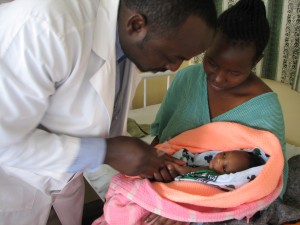Heath sector organizations including The International Community of Women Living with HIV recognize the leadership and effort fall partners in implementing Uganda’s eMTCT program. The launch in Masaka was an important moment to draw attention to recent eMTCT launches that have used discriminatory and stigmatizing language
For example, the previous eMTCT launch in Soroti isolated and stigmatized a group of HIV positive children, while characterizing the mother of a group of negative children as ‘’heroes’’
Some HIV positive mothers despite having embraced the eMTCT programme as recommended nonetheless have delivered HIV positive children. These mothers should be applauded as much as those whose children are HIV negative. All women need to be supported to care for their children so that they lead a normal and meaningful life. eMTCT launches should portray this fact and not be perceived to put down some mothers.
Moreover; the first lady concluded that if any child is born with HIV in Uganda currently; it is the fault of that child’s mother.
These are extremely harmful comments and no matter the intention of the organizers; they should not be repeated anywhere. No woman wants her baby to be HIV positive-and no HIV positive child should be told that his or her mother is not a hero. Furthermore, a quality pediatric HIV treatment means HIV positive children can live with HIV.
The language used during eMTCT launches including speeches, entertainment and media communications—must be stigma free. Blaming HIV positive women is unacceptable; it could also drive women further from ante nantal care services because they will fear judgment and discrimination from the health sector.
HIV treatment and quality services must be made more accessible to HIV positive pregnant women in Uganda. We call for the following immediate interventions to ensure the national eMTCT programme
Increase uptake of the eMTCT services by ensuring the heath sector delivers respectful quality services to HIV positive women and their families
Require all eMTCT service delivery sites to use family support groups, trained and compensated mentor mothers
Increase retention in care by providing high impact loss to follow up prevention services, such as home based follow up following missed clinic visits.
info@icwea.org
Call Now
+256 703 975192
Menu
Quick Links
© 2025 The International Community of Women Living with HIV. All rights reserved.
Menu




